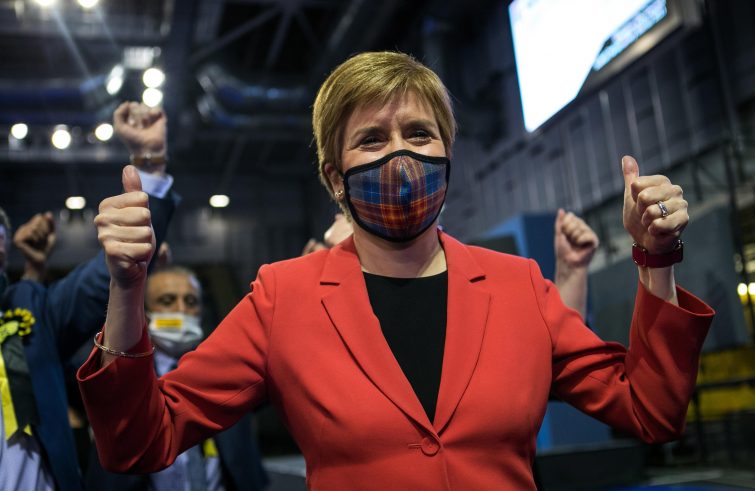
“UK local elections of May 6, with a turnout of 48 million citizens, confirm the divide between pro- and anti-Brexit voters”, said Stefan Enchelmaier, expert in European politics and Professor at the University of Oxford, who analysed the impact of the latest election result on UK-EU relations for SIR.
 “The Labour party has lost a total of 326 local councillors, and is now the Remain party, i.e. of those who want to stay in the European Union. The Tories’ success,” he added, “gaining 235 additional council seats, mostly in long-established Labour-majority constituencies, proves the success of the election campaign’s rhetoric that Britain was right to leave the EU. The Conservative Party has even won the votes of former Brexit Reform UK voters. Citizens cast their ballot in the belief that the success of the vaccination campaign was also thanks to Brexit. The vote for the Conservatives is a vote for English nationalism, bound to intensify separatist drives in Scotland, Wales and Northern Ireland.”
“The Labour party has lost a total of 326 local councillors, and is now the Remain party, i.e. of those who want to stay in the European Union. The Tories’ success,” he added, “gaining 235 additional council seats, mostly in long-established Labour-majority constituencies, proves the success of the election campaign’s rhetoric that Britain was right to leave the EU. The Conservative Party has even won the votes of former Brexit Reform UK voters. Citizens cast their ballot in the belief that the success of the vaccination campaign was also thanks to Brexit. The vote for the Conservatives is a vote for English nationalism, bound to intensify separatist drives in Scotland, Wales and Northern Ireland.”
Is the European Union in the firing line?
Badmouthing the EU, as the Conservatives have been doing for years, has borne fruit.
The dispute over the status of the EU ambassador to the UK, João Vale de Almeida, is one example of this.
The British government refused to grant him full diplomatic status immediately, as it sought to spark off polemics and anti-European sentiment, only to inevitably cave in.
Do you expect the British government’s hostile attitude to continue?
Yes, without a doubt. The UK-EU Trade Agreement of 24 December did not resolve all aspects for future trade, and therefore further negotiations are inevitable, especially with regard to tariffs and bureaucratic procedures. The treaty says very little about services, which account for 80% of the British economy, prevailing in the financial and recreation industry, consistently benefiting from trade with the European market. An agreement on these sectors is likely to be reached in ten to fifteen years, and Brexit rhetoric will persist throughout.
The elections of May 6 also revitalized the issue of Scottish-EU relations, as nationalist Prime Minister Nicola Sturgeon won a landslide victory, taking 64 seats in the Edinburgh parliament, one short of an absolute majority. It appears that a second independence referendum will be inevitable…
Polls suggest a significant 5% increase in the number of Scottish pro-independence voters- from 45% in the first 2014 referendum to 50% today.
Should the majority vote for an independent Scotland in the referendum, and should this objective be accomplished, the Scottish government in Edinburgh will apply for EU membership.
Scottish legislation is already aligned with European legislation and, therefore, no legal problems will arise. However, political challenges are likely to occur given Spain’s opposition, backed by France, and all European countries are required to support a new Member State. Spaniards fear that Scotland’s entry could encourage a similar request from Catalonia.
What’s the situation in Northern Ireland?
The British government could oppose nationalist Prime Minister Nicola Sturgeon’s request for a second referendum, not least because a similar situation could arise in Northern Ireland, where a majority could favour a united Ireland with Dublin as its capital. The pro-independence movement is also growing in Wales.
Does this anti-EU strategy of the Conservative Party entail any significant risks?
The electorate who left the Labour Party on anti-European grounds expect British Prime Minister Boris Johnson to create new jobs and boost the economy in impoverished areas of northern England. But so far no plans exist other than the ‘level up’ rhetoric.
If the Prime Minister fails to deliver on his promises we will have millions of disappointed people, a situation that could pose a danger to democracy.









